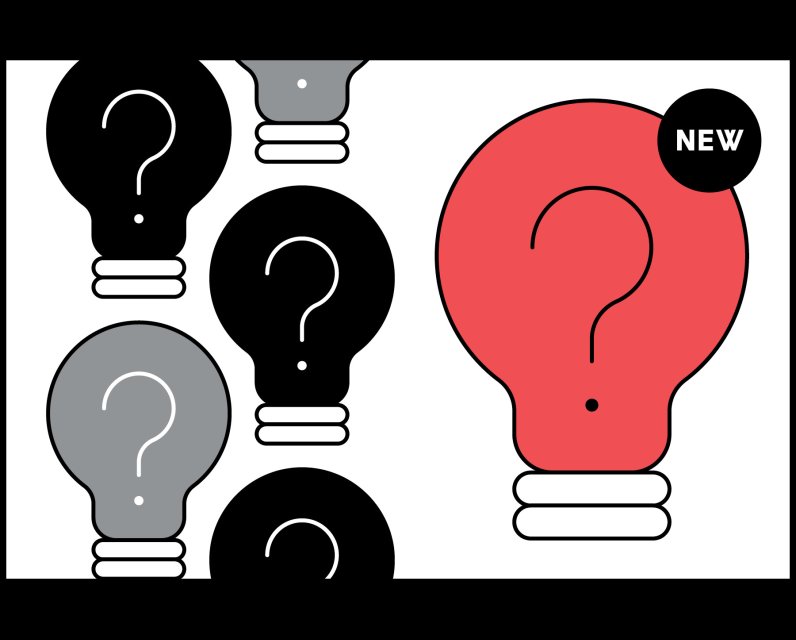Weekly Quiz: Potash Gold, Prompts for bioterrorism, Pre-mature caregivers

1
2
const title = "Potash Gold, Prompts for bioterrorism, Pre-mature caregivers"; const date = "August 02, 2025"; const data = [ { image: "https://walrus-assets.s3.amazonaws.com/img/iStock-505603265-1536x1024.jpg", title: "AI Is Making It Easier to Build a Biological Weapon", url: "https://thewalrus.ca/ai-biological-weapon/", question: "The global spread of AI has sparked many security concerns. Among the greatest threats? How artificial intelligence may enable extremists to advance ideological causes through acts of bioterrorism. Cited in the International AI Safety Report, what percentage of improvement did AI show in generating instructions related to biological and chemical weapons in 2024 alone?", options: [ "30 percent", "50 percent", "70 percent", "80 percent", ], answer: "80 percent", correct: "The International AI Safety Report, produced for the 2025 Paris AI Action Summit, suggest certain Large Language Models’ (LLMs) instructions for releasing lethal substances showed an 80 percent improvement in 2024 alone. LLMs are getting far better at tasks related to biological and chemical weapons, accurately responding to queries about the acquisition and formulation of deadly agents. In a dark twist of irony, if a tech-enabled bioterrorist attack does occur, AI will also be vital in expediting a cure. Let’s hope it never reaches that point, writes Kyle Hiebert. COVID-19 already showed how a novel virus can wreak havoc on a hyperconnected world. Odds are the next pandemic will be much worse.", incorrect: "The International AI Safety Report, produced for the 2025 Paris AI Action Summit, suggest certain Large Language Models’ (LLMs) instructions for releasing lethal substances showed an 80 percent improvement in 2024 alone. LLMs are getting far better at tasks related to biological and chemical weapons, accurately responding to queries about the acquisition and formulation of deadly agents. In a dark twist of irony, if a tech-enabled bioterrorist attack does occur, AI will also be vital in expediting a cure. Let’s hope it never reaches that point, writes Kyle Hiebert. COVID-19 already showed how a novel virus can wreak havoc on a hyperconnected world. Odds are the next pandemic will be much worse.", }, { title: "Potash Companies Are Getting Rich. Saskatchewan, Not So Much", url: "https://thewalrus.ca/potash-companies-are-getting-rich-saskatchewan-not-so-much/", question: "Canada has a potash issue, but it isn’t about supply. Saskatchewan is home to one-third of the world’s potash reserves. Writer Eric Cline says that for years, experts have pointed to a glaring imbalance regarding the province’s potash industry. What is this imbalance?", options: [ "Saskatchewan has little governance over where its potash reserves are exported", "Companies make a lot of profit but pay little in royalties and taxes", "There are not enough workers in Saskatchewan to meet potash extraction demands", "Saskatchewan is depleting its potash reserves by exporting to too many countries", ], answer: "Companies make a lot of profit but pay little in royalties and taxes", correct: "For years, experts across the political spectrum have pointed to the same glaring imbalance: potash companies rake in enormous profits while paying remarkably little in royalties and taxes. The problem isn’t new, but the cost of doing nothing is growing fast. No one disputes that the industry should earn a solid return on investment. Since the opening of the first commercial mine at Patience Lake in 1958, potash has played a valuable role in Saskatchewan’s economy, generating well-paying jobs and significant spinoff activity. But alongside that, the public has a right to expect their fair share from what’s being pulled out of the ground. And right now, it isn’t getting one. Lawyer and former cabinet minister in Saskatchewan, Eric Cline, says if we’re serious about strengthening domestic well-being and prosperity, that is one place to start.", incorrect: "For years, experts across the political spectrum have pointed to the same glaring imbalance: potash companies rake in enormous profits while paying remarkably little in royalties and taxes. The problem isn’t new, but the cost of doing nothing is growing fast. No one disputes that the industry should earn a solid return on investment. Since the opening of the first commercial mine at Patience Lake in 1958, potash has played a valuable role in Saskatchewan’s economy, generating well-paying jobs and significant spinoff activity. But alongside that, the public has a right to expect their fair share from what’s being pulled out of the ground. And right now, it isn’t getting one. Lawyer and former cabinet minister in Saskatchewan, Eric Cline, says if we’re serious about strengthening domestic well-being and prosperity, that is one place to start.", }, { image: "https://walrus-assets.s3.amazonaws.com/img/WEB_JUL25_TheMillenialCaregiver-1-1536x1024.jpg", title: "Millennials Are Becoming Caregivers Whether They’re Ready or Not", url: "https://thewalrus.ca/millennial-caregivers/", question: "Millennials are the world’s new caregivers, but the role comes with challenges. High levels of stress, unstable jobs, and stagnant wages are just some of the obstacles facing the “new sandwich generation”—millennials caring for both their children and elderly parents. Despite this, public health expert Rachael Piltch-Loeb says millennials bring a big asset to caregiving. What is it?", options: [ "Perseverance through economic disruptions", "Flexible work schedules due to prioritizing work-life balance", "Navigating online health care systems with digital skills", "Familiarity with caregiving due to living in multigenerational households", ], answer: "Navigating online health care systems with digital skills", correct: "Millennials bring one big asset to caregiving: digital skills. They know how to navigate apps and online tools that help coordinate care, manage medications, and connect with pharmacists or therapists. They’re comfortable using telehealth services, remote monitoring devices, and communication platforms to stay in touch with health care providers. They know how to search for home health aides, join online support groups, and reach out to other caregivers, easing the isolation and frustration that comes with the role. But these distinct ways of engaging with the medical system don’t always jive with supporting someone else’s care. Millennials utilize health care services in ways that reflect their preference for convenience.", incorrect: "Millennials bring one big asset to caregiving: digital skills. They know how to navigate apps and online tools that help coordinate care, manage medications, and connect with pharmacists or therapists. They’re comfortable using telehealth services, remote monitoring devices, and communication platforms to stay in touch with health care providers. They know how to search for home health aides, join online support groups, and reach out to other caregivers, easing the isolation and frustration that comes with the role. But these distinct ways of engaging with the medical system don’t always jive with supporting someone else’s care. Millennials utilize health care services in ways that reflect their preference for convenience.", }, { title: "Canada Created a Cold War Isolation Laboratory. It Ended in Scandal", url: "https://thewalrus.ca/canada-created-a-cold-war-isolation-laboratory-it-ended-in-scandal/", question: "Between 1959 and the mid-1970s, more than 500 volunteers were subjected to isolation experiments run by psychologist John Zubek, leaving many with cognitive harm. Amid growing public scrutiny surrounding Zubek’s research, what explanation did Zubek give for conducting his confinement experiment?", options: [ "He intended to investigate the human challenges of space travel", "He set out to understand how the brain processes stimuli", "He wanted to examine how solitary confinement can be used in prisons", "His approach was to identify ways to support researchers in submarines", ], answer: "He intended to investigate the human challenges of space travel", correct: " John Zubek used the human challenges of space travel to justify subjecting his volunteers to much longer periods of isolation and confinement. Extended discomfort, he thought, produced the physiological and psychological conditions necessary to understand the limits of the human body. He suggested that the experiment could prove beneficial in training astronauts for space travel. Zubek conducted his research as the competition in space research escalated between the superpowers. The Canadian public watched with anticipation and alarm in April 1961 when Yuri Gagarin became the first human to enter space and orbit Earth. As the Soviets appeared to gain an edge on their American rivals, reassurances from scientists like Zubek reiterated Canada’s commitment to the West.", incorrect: " John Zubek used the human challenges of space travel to justify subjecting his volunteers to much longer periods of isolation and confinement. Extended discomfort, he thought, produced the physiological and psychological conditions necessary to understand the limits of the human body. He suggested that the experiment could prove beneficial in training astronauts for space travel. Zubek conducted his research as the competition in space research escalated between the superpowers. The Canadian public watched with anticipation and alarm in April 1961 when Yuri Gagarin became the first human to enter space and orbit Earth. As the Soviets appeared to gain an edge on their American rivals, reassurances from scientists like Zubek reiterated Canada’s commitment to the West.", }, ];
The post Weekly Quiz: Potash Gold, Prompts for bioterrorism, Pre-mature caregivers first appeared on The Walrus.



Comments
Be the first to comment